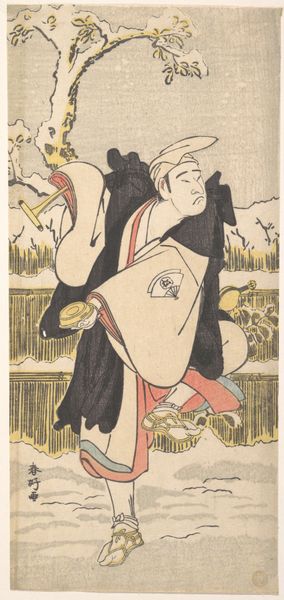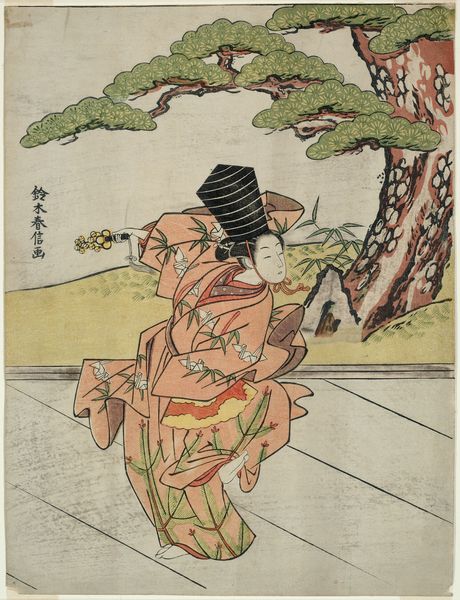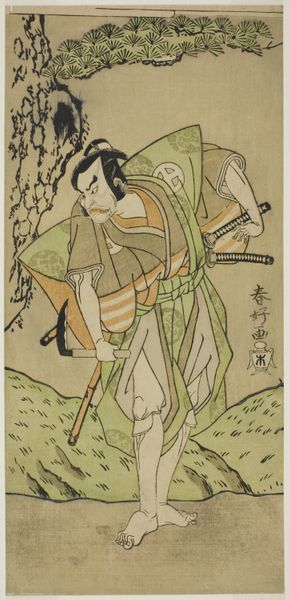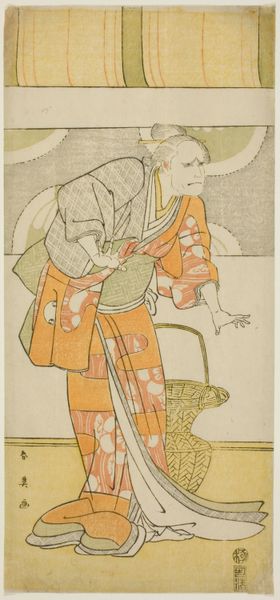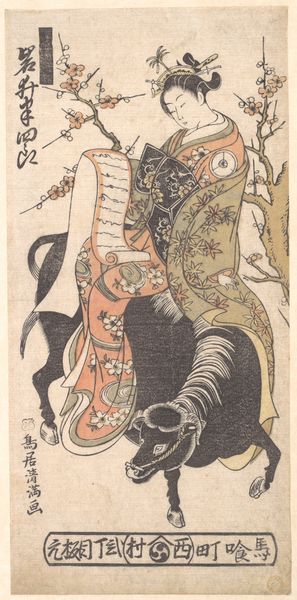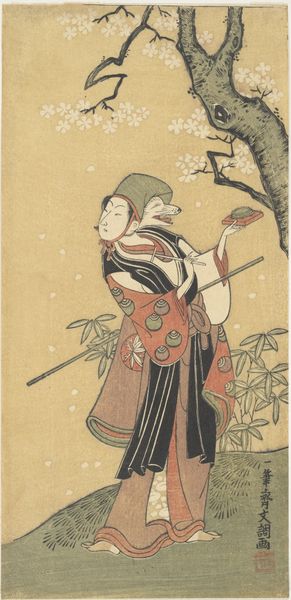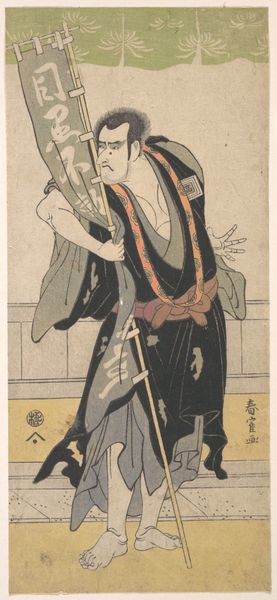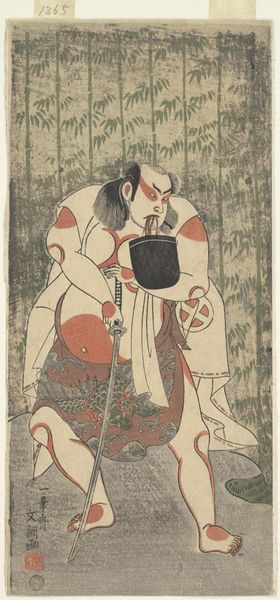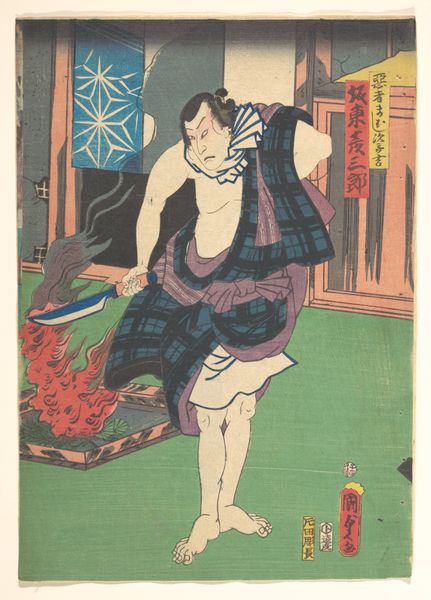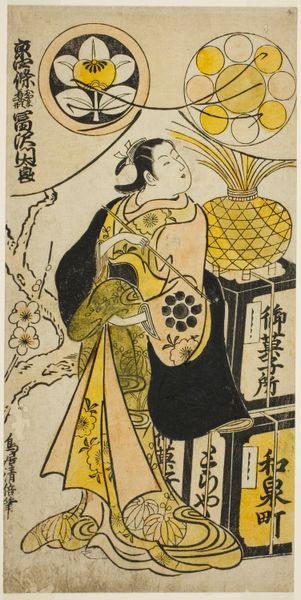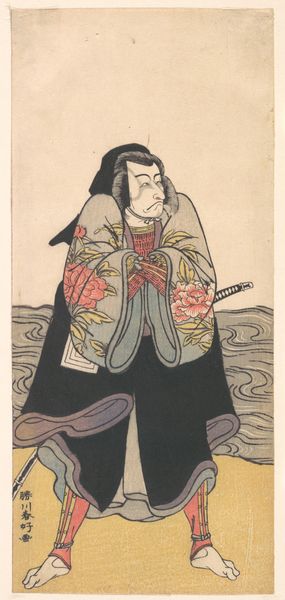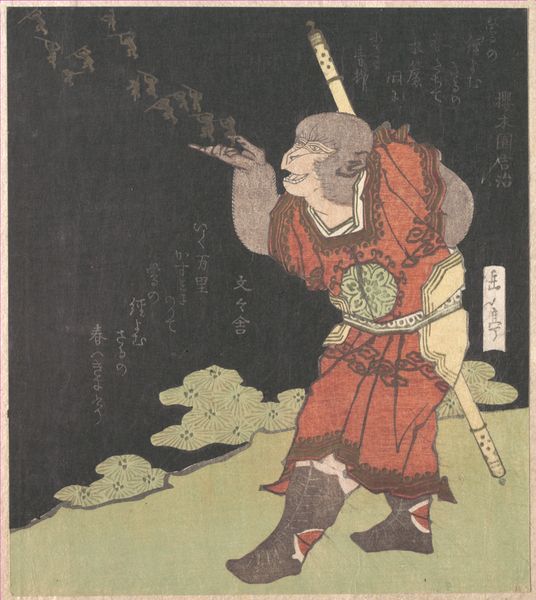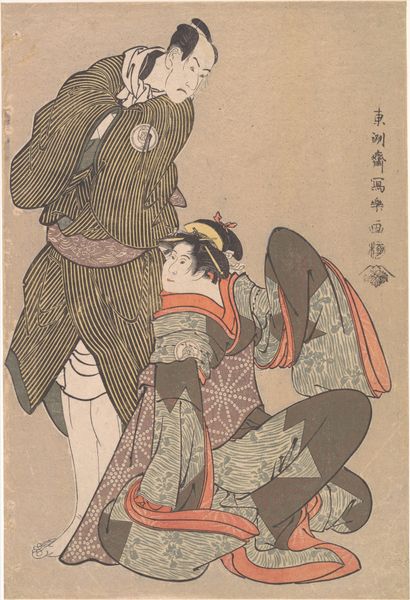
Ichimura Uzaemon IX in the Role of Kiyohime in Musume Dōjōji (the Girl of Dōjōji) 1761 - 1781
0:00
0:00
print, woodcut
#
portrait
# print
#
asian-art
#
ukiyo-e
#
figuration
#
woodcut
#
genre-painting
Dimensions: Hosoe: 12 3/4 x 5 7/8 in. (32.4 x 14.9 cm)
Copyright: Public Domain
Curator: This striking woodcut print is by Ippitsusai Bunchō, dating from between 1761 and 1781. It's titled "Ichimura Uzaemon IX in the Role of Kiyohime in Musume Dōjōji," currently residing at the Metropolitan Museum of Art. Editor: There's a sense of… heightened drama about it. She almost floats off the surface of the wood, radiating an odd mixture of melancholy and power. Is she spitting out a soul? Curator: Actually, that’s a paper streamer. Kiyohime is a character known for transforming into a serpent, driven mad by unrequited love. These types of ukiyo-e prints often functioned as promotional material. Editor: Ah, commerce intertwined with folklore, brilliant! You've got that interplay of craft in the printmaking itself too, each carved line telling a story of labor, from the artist's design to the printer's meticulous work… Curator: Precisely. And think of the pigments – their origins, their cost, how that informs the piece's accessibility to different classes of people... These materials themselves speak to broader social and economic contexts of the Edo period. Editor: Yet beyond that tangible stuff, her eyes... they haunt, don't they? You sense her coiled energy, the simmer beneath the elaborate kimono. This character transcends mere marketing, achieving, dare I say, genuine artistry. Curator: Perhaps. I see the costuming as a commodity too, elaborately manufactured, sold, worn to stage the performance represented. Editor: A fascinating cycle of creation and consumption you highlight. I suppose even rage can be commodified. Even so, she’s beautiful, monstrous and elegant all at once... It unsettles me a little! Curator: Indeed, there’s layers to peel away, like the many layers in producing the final print through various colored blocks and specialized carving techniques, to the role that the portrayed actor represents, which in turn depicts Kiyohime. Thanks, these are great starting points. Editor: Pleasure. A good haunting should never be a simple thing, just like a great work of art is made and then remade.
Comments
No comments
Be the first to comment and join the conversation on the ultimate creative platform.
